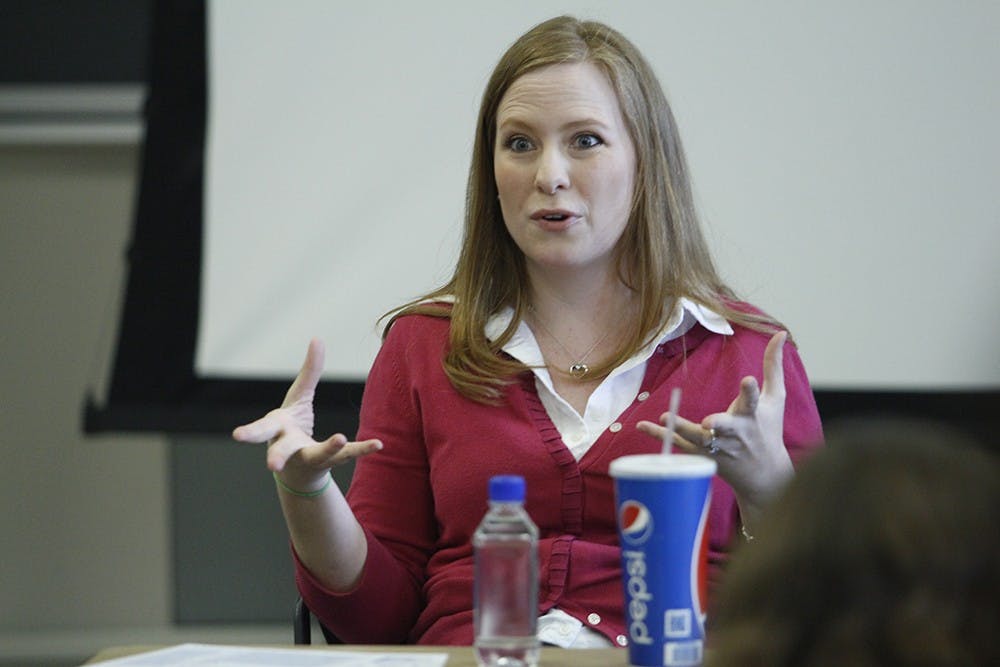Falkenberg spoke on Wednesday as a guest of J360: Behind the Prize, taught by professor of practice Tom French. Over the course of the semester, students in the class heard from top media professionals who have won or been finalists for top prizes, including the Pulitzer. After each talk, the audience participates in a question and answer session.
Falkenberg won the Pulitzer on April 20 for her work at the Houston Chronicle, which the Pulitzer board praised “for her provocative metro columns written from the perspective of a sixth-generation Texan, often challenging the powerful and giving voice to the ?voiceless.”
Her series of columns last summer about grand jury abuses formed the bulk of the 10 columns submitted for the prize. This is the first Pulitzer Prize awarded to the Houston Chronicle.
Touching on her recent win, Falkenberg considered last year even more shocking when she was first nominated as a finalist. She joked that this year she felt a lot of pressure from her colleagues to win a Pulitzer after being a finalist.
The few days after winning the Pulitzer are busy for the winner, French said, and everyone who they have ever met in their life will want to congratulate them.
A self-identified introvert, Falkenberg said she felt weird having all eyes on her.
As a columnist, Falkenberg said she has to let the creative side of her brain take over, even when on deadline.
“I didn’t write the column,” Falkenberg said. “A little muse comes in every time I need a story and writes the column for me.”
As a child of a truck driver father and a stay-at-home mother, Falkenberg said she was known as the annoying girl always asking questions. When she discovered journalism in a class in high school she said she thought there could be no better job in the world, being able to ask endless questions.
“The question is valid, and the answer is always out there,” Falkenberg said.
When getting ready to apply to college and telling her mother she wanted to enter a journalism program, the response she received was, “Why, you are so smart?”
Falkenberg said she knew she was fostering an ambition that was foreign to her family but wanted to be able to get the answers to her questions.
She covered state government at the start of her journalism career, allowing her to be more aware of the Texas legal system.
Transitioning into the change from reporting to column writing, Falkenberg highlighted finding the human element. She referenced one story strictly based off files and various public records and being “tickled to death” when receiving dialog from ?documents.
“As journalists, we are taught not to have an opinion,” Falkenberg said. “But one of the best things about this job is we are all given a lot of power to get to just say it.”
This power has its downfalls, as well. She said one complaint she received said Falkenberg was the reason women shouldn’t have been given the right the vote.
“As a columnist, you have the duty to focus on a variety of things, not just one topic,” Falkenberg said. “You can be an advocate and a journalist at the same time.”
Falkenberg has worked at the Houston Chronicle since 2005 and became a columnist for the paper in 2007. Prior to the Chronicle, Falkenberg worked as an Associated Press reporter.






